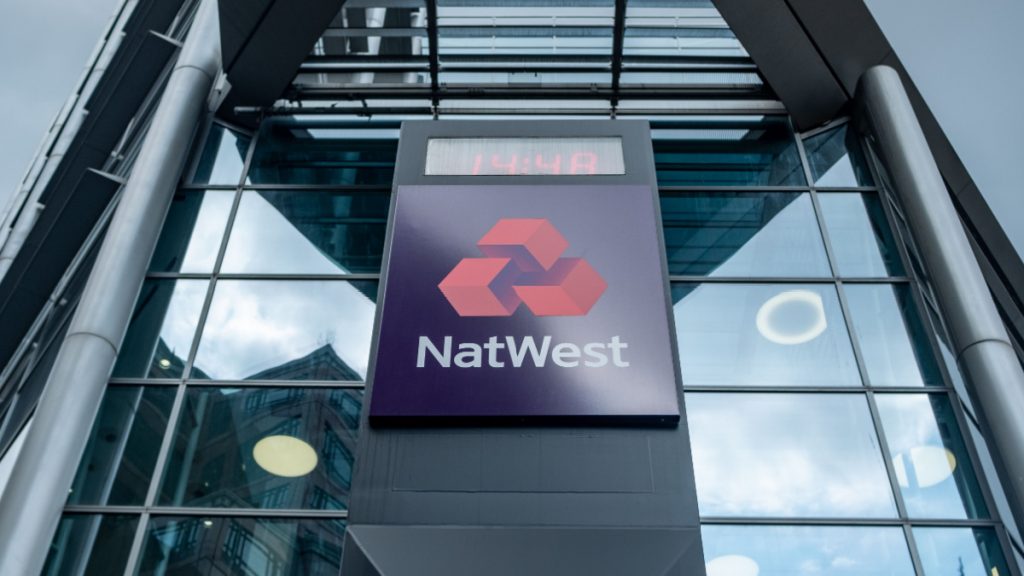The role of fintech in the wider financial ecosystem and UK economy at large is impossible to ignore. At NatWest Group, engagement with the sector is a key priority, according to Lee McNabb, the bank’s Head of Group Payments Strategy and Research.
In a discussion at Pay360 last month, Payment Expert gained some insights into NatWest’s history with fintech as well as McNabb’s observations on the UK payments landscape at large.

Summing up NatWest’s approach to emerging technologies, McNabb asserted that the firm is “arguably the UK’s biggest fintech as well as a big bank with all the adjacencies we’ve got’. Fintech is ‘a real part’ of NatWest’s strategy, he said.
The firm backs its fintech ambitions with examples of both historic and recent acquisitions, investments and partnerships. The group’s SME-focused Mettle is part of the fintech ecosystem, McNabb explained, whilst a more recent example is its investment in UK payments firm Icon Solutions.
“It’s a tough macroeconomic environment, investment is down, multiples are down, valuations are down, but from a fintech perspective we wouldn’t be in the market we have without them. We’re an open shop in terms of collaboration with fintechs.
“If you open the NatWest app you’ve gone through a journey involving four or five fintechs. We’re an open, collaborative, partnership based approach. We can’t do what we do without fintechs.
“There are people out there who can build better, cheaper, faster. The fintech sector is massively important, it’s fantastic and we embrace it, invest in it and support it.”
In fact, one of NatWest Group’s flagship offerings originated as a fintech investment and in an era of widespread Open Banking adoption has emerged as a significant segment of its business model.
‘Payit by NatWest’ began as a partnership between the bank and a fintech company, McNabb noted, with the firm’s payments strategy lead having joined the company on the day the Payit pilot was launched.
Four years after Payit’s 2020 market debut, the significance of the brand to NatWest can not go understated, with the company becoming the first bank on the Crown Commercial Services’ (CCS) Dynamic Purchasing System (DPS).
“It’s good that the government is looking to drive Open Banking adoption, you can now pay tax through Open Banking, and it’s been used in the billions of pounds,” McNabb continued.
“Other government departments will look at that as an opportunity to drive innovation in the market, so there’s a bit more competition that’s rife and not just the card schemes and existing rails.
“Us being on that is a good example of the government adopting Open Banking, and it’s just one piece of the puzzle.”

NatWest has recognised the potential of Open Banking and the government has also recognised its significance. With the UK almost certainly in an election year, the Labour Party opposition has also sought to prove its Open Banking credentials.
This recognition has not come out of nowhere and McNabb noted that there are several successful use cases for Open Banking such as paying credit card debts and countering fraud, and there are also settlement and liquidity benefits. However, spontaneous payments with Open Banking are not quite yet over the line.
“Has it got seismic adoption now? No. Will it? Yes, I think it will, but it’s quite a long journey I think,” he said when asked about Open Banking’s potential as a game changer for UK payments.
“Sometimes things take a while in terms of adoption, it took nearly ten years for contactless to become the beast that it is now. I think Open Banking can be the same, but there are some questions about the future roadmap.”
Account-to-account payments have been taken up in other countries, such as Brazil, India and the Netherlands, but in the UK this may not be an easy task, with the country’s payments journey having gone from cash to card to wallet.
He added: “The customer experience needs to be better for some journeys, especially getting into mobiles and day to day. The commerciality needs to improve, as we don’t have the same model like cards sitting behind Open Banking.
“The PSR (Payments Systems Regulator) wants account-to-account to be a success, and Open Banking is a massive vehicle for that. Ultimately though its early days, it’s a few years old compared to several decades of cards. It will get there, but it needs some collaboration and drive.”
Last year, Joe Garner published the Future of Payments Review with Open Banking, particularly apparent gaps in consumer protection surrounding the practice, a core area of focus.
The government wants to be as proactive as possible to ensure the UK maintains a leadership position in Open Banking. McNabb explained that banks such as NatWest are working to do the same for the benefit of the finance and payments sector.
“NatWest has been provocative in this space, and are looking to differentiate for our customers, but there needs to be an overall industry drive for Open Banking to become a game changer.”
Outside of Open Banking, McNabb noted the potential of Distributed Ledger Technology (DLT), sharing his view that this could play an influential role in payments, but that this will take ‘three, five, 10 years’ for real impact to be felt.
More immediate impact may be felt by the launch of the Regulated Liability Network (RLN) by UK Finance, he said, which will function as a form of sandbox for innovators to try out payment, transaction and liability settlement options.
“We can talk about Gen AI, it’s been around for ages, but from a banking perspective there is an opportunity to link pieces together.”
Additionally, when talking about technology, it is hard not to mention Artificial Intelligence. AI is taking the world by storm and is making an impact across various sectors, not least fintech and payments.
“We can talk about Gen AI, it’s been around for ages, but from a banking perspective there is an opportunity to link pieces together – how can you link Open Banking and the opportunities there to Gen AI and make the customer experience better?” McNabb summarised.
As McNabb explained, partnering with fintechs, as well as operating its own companies, has been central to NatWest’s payments strategy. However, the increasing influence Big Tech firms are having in payments is hard to ignore.
Apple, Google and Meta, for example, have all become major players in the space. McNabb observed that he had used Google Pay to purchase his London underground ticket to Pay360, which he then stored in his Google Wallet.
Big Tech’s increasing influence in payments has caused alarm for some – the long-running EU antitrust dispute with Apple is perhaps the best example of this – but as McNabb noted, these firms are here to say. From here on out, traditional banks need to evaluate how they can best work with Big Tech.
“The opportunity is to partner with and embrace what they do from a user experience perspective,” he said.
“What they’ve done is raise the bar, much like neobanks and fintechs in terms of customer experience. Apple is a good example of getting deeper past payments in the data side of Open Banking through connected cards proposition, that’s just the start.
“You can look to other countries, but in the UK there will be moves into the likes of deposits, lending, and for the banks it’s about how we do best engage and collaborate with them to most benefit our customer.”
NatWest has been as keen to partner with Big Tech and neobanks as it has been with emerging fintech firms. McNabb cited the fact that the bank was the first to engage with ApplePay in Europe as an example.
Looking ahead, Big Tech will clearly continue to play a huge role in payments technology across a number of jurisdictions, and both regulators and policymakers need to acknowledge this.
“There is a HM Treasury payments vision, but Big Tech is not part of that vision,” he said. “They are part of the future landscape, why have they not been included?”
“Strategically, we need to ensure that resilience, scalability, security, confidence and trust is front and centre.”
Amidst all this talk of Big Tech, Open Banking, AI, DLTs, the RLN, neobanks and regulation, there is one more factor NatWest considers – how well is newly adopted payment technology going to resonate with its customers.
The company has built itself up as the UK’s largest corporate bank alongside c10 million digitally active retail customers and a total customer base of 17 million. Ensuring payment flows meet the needs of this dynamic customer base is a vital task.
“Strategically, we need to ensure that resilience, scalability, security, confidence and trust is front and centre,” McNabb added.
“Customer needs is a theme that runs throughout that. Whenever we look at new experiences, we need to think about how that benefits the customer, both consumer and at the SME and corporate level.”
The UK’s payment landscape is an increasingly competitive one, however, and against any incoming challenges NatWest is banking on differentiation whether this be by Open Banking, participation in the RLN, or fintech and Big Tech partnerships.
Security, resilience and innovation, with a goal to building up customer confidence and trust, are the group’s major objectives across its portfolio of assets, such as card acquiring platform Tyl by NatWest to the NatWest Markets arm with strong FX capabilities, McNabb explained, as the bank strives to ensure it is ‘going above and beyond what everyone else is doing’.






















